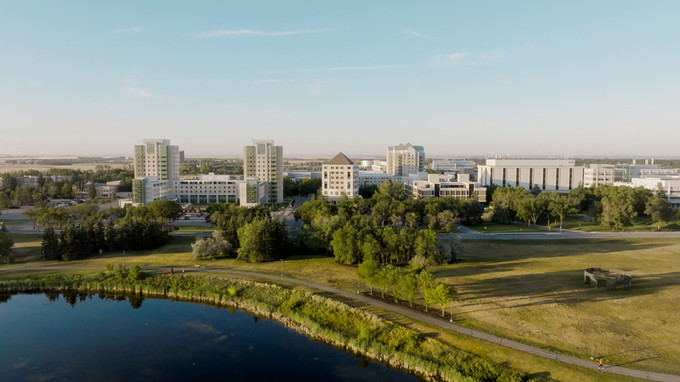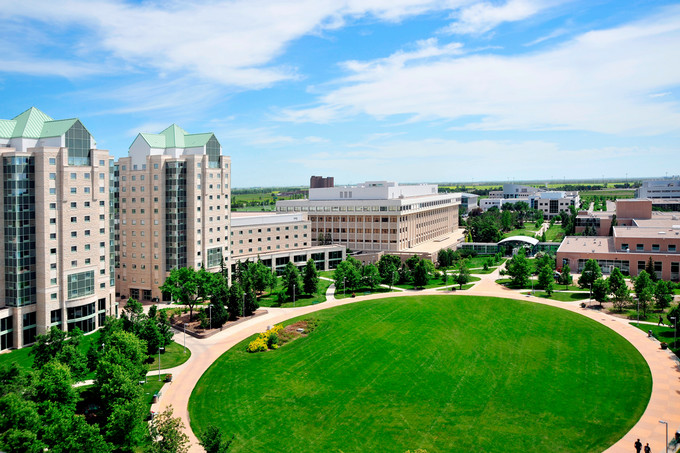
About Hill Levene School of Business
At the Hill Levene School of Business at the University of Regina, we prepare students to succeed in a changing world of business. Located in Regina, Saskatchewan—a community known for opportunity and connection—we offer undergraduate and graduate programs that blend academic excellence with practical experience.
Through experiential learning, co-operative education, industry partnerships, and a focus on responsible and sustainable business practices, our students gain the skills and confidence to make a real impact in their careers and communities.
Join a growing network of students, alumni, and business leaders who are shaping the future of work and making a difference in Saskatchewan, across Canada, and around the world.
Our Story, Our Legacy
In 1965, the School of Administration was developed as part of the Faculty of Arts at the University of Saskatchewan - Regina Campus. In 1968, the School of Administration became known as the Faculty of Administration and was awarded Canada’s first Bachelor of Administration (BAdmin) degree in 1969.
The Faculty of Administration was a founding faculty when the University of Regina became an independent, degree-granting institution in 1974. We awarded our first Master of Administration degree in 1985. In 2004, the undergraduate degree changed its name to the Bachelor of Business Administration (BBA), and in 2005 the faculty changed its name to the Faculty of Business Administration.
In May 2005, the Kenneth Levene Graduate School of Business was founded in recognition of Dr. Kenneth Levene’s gift of $4 million to the graduate program in the Faculty of Business Administration.
In November of 2007, a $10 million gift to the University of Regina from Dr. Paul J. Hill led to the naming of the undergraduate business program as the Paul J. Hill School of Business. As well as establishing scholarships in business ethics, it created a unique relationship with one of Canada's leading business schools, the Richard Ivey School of Business.
Get to Know Us
Dean's Office
Faculty and Staff
Executives In Residence
Leaders Council
Through innovative and impactful business education and research, we provide transformative experiential learning, foster equity, diversity, and inclusion, and create local and global impact, preparing our students for meaningful careers and contributions to society.
Mission
Through innovative and impactful business education and research, we provide transformative experiential learning, foster equity, diversity, and inclusion, and create local and global impact, preparing our students for meaningful careers and contributions to society.
Vision
Where responsible business comes to life through education and research.
Values
- Student-Centred
- Ethical Conduct and Professional Practice
- Commitment to Truth and Reconciliation
- Curiosity
- Diversity, Equity, and Inclusion
- Community

Strategic Plan 2026-2028
Hill Levene School of Business Strategic Plan 2026-2028 aligns with the University of Regina’s 2020-2025 Strategic Plan, All Our Relations: kahkiyaw kiwâhkômâkaninawak. This connection ensures that our work contributes directly to the University’s broader aspirations of discovery, truth and reconciliation, equity diversity and inclusion, well-being, sustainability, and community impact.
Hill Levene Societal Impact
At the Hill Levene School of Business, we believe business has the power to create positive change. Our commitment to societal impact drives what we do—from research and teaching to partnerships and community engagement. Guided by the United Nations Sustainable Development Goals and our role as a PRME signatory, we prepare responsible leaders who create inclusive, ethical, and sustainable change.